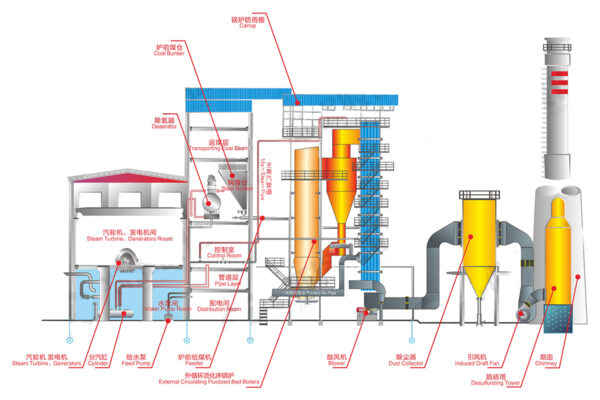Apia Indonesia: Bridging Health Services Between Villages and Cities
Indonesia, with its vast archipelago and diverse population, faces unique challenges in providing equitable healthcare across urban and rural areas. While cities like Jakarta, Surabaya, and Bandung have access to advanced healthcare facilities, rural villages often struggle with limited resources, lack of infrastructure, and a shortage of skilled health professionals https://apiapapua.org. Apia Indonesia, a non-governmental organization committed to improving healthcare access, is working tirelessly to bridge the gap between urban and rural health services, bringing healthcare closer to the people who need it most.
The Healthcare Divide: A National Challenge
Despite Indonesia’s significant strides in improving public health, there remains a stark disparity in healthcare services between urban and rural areas. According to the World Health Organization, rural areas of Indonesia still experience higher maternal and child mortality rates, fewer healthcare professionals, and limited access to modern medical technologies compared to urban regions.
Factors contributing to this divide include geographical isolation, economic limitations, and cultural barriers. Villages in remote islands and mountainous regions are often cut off from essential services due to poor road infrastructure and a lack of reliable transportation. Moreover, there is often a significant difference in education and awareness about health issues between urban and rural populations.
The Role of Apia Indonesia in Addressing Health Disparities
Apia Indonesia seeks to level the playing field by bridging the health services divide between cities and villages. By leveraging local knowledge, volunteer networks, and cross-sector collaborations, Apia has been able to create innovative solutions that deliver healthcare services directly to underserved communities.
Founded in 2010, Apia Indonesia aims to ensure that every citizen, no matter where they live, has access to the care and resources they need to live a healthy life. The organization’s approach is rooted in community-based health interventions, volunteerism, and technology-driven solutions.
Volunteerism as a Bridge for Healthcare Access
One of the key strategies used by Apia Indonesia is the mobilization of volunteers to work directly in remote villages. Volunteers come from various backgrounds, including healthcare professionals, students, and individuals passionate about improving public health. These volunteers are trained and equipped to work on the ground, providing education, medical assistance, and support to local communities.
Apia Indonesia’s volunteer network plays a crucial role in distributing health knowledge, offering health services, and building trust within rural communities. Volunteers often serve as the first point of contact between villagers and formal healthcare providers. They conduct door-to-door health education campaigns, teaching people about basic hygiene, maternal care, nutrition, and child immunization.
The presence of volunteers also facilitates communication between rural populations and urban health centers. Volunteers act as intermediaries, translating medical information and assisting with referrals to larger health facilities when needed.
Mobile Clinics and Health Outreach Programs
Apia Indonesia’s mobile clinics have proven to be a game-changer in reaching remote areas that are typically underserved by healthcare services. These clinics, equipped with essential medical supplies and staffed by trained healthcare workers, travel to villages and provide basic healthcare services such as prenatal care, immunizations, and basic diagnostics.
The mobile clinics also offer health screenings, disease prevention education, and mental health counseling, addressing the immediate healthcare needs of rural populations. Additionally, the clinics serve as temporary healthcare hubs, where local residents can receive the medical attention they might otherwise lack due to distance or financial constraints.
Strengthening Local Health Systems
Apia Indonesia does not only focus on short-term interventions; it also works to strengthen local health systems in rural areas. The organization collaborates with local health authorities, training community health workers, midwives, and health cadres to provide continuous care within their villages. These trained individuals become the backbone of the healthcare infrastructure in their communities, ensuring that health services are sustained long after the Apia Indonesia team has moved on.
A significant component of Apia Indonesia’s approach is its emphasis on sustainable health practices. Volunteers work alongside health workers to train the local population in preventive care and health education. This empowers villagers to manage their own health and reduce reliance on outside resources.
In some areas, Apia Indonesia has set up health cooperatives or village health committees, where local residents can contribute to the decision-making process regarding healthcare needs, funding, and service delivery.
Using Technology to Overcome Barriers
Apia Indonesia recognizes that digital tools and technology can play a pivotal role in overcoming the challenges of geography and limited resources. As part of its strategy, Apia has introduced digital health solutions to bridge the urban-rural healthcare gap. These include telemedicine services, health apps, and SMS-based health information systems.
Through telemedicine, villagers can consult with doctors and specialists in urban centers via video calls, overcoming the barrier of distance and travel costs. Apia’s mobile apps, designed specifically for maternal and child health, offer reminders for antenatal appointments, nutritional advice, and alerts for immunization schedules, ensuring that rural populations stay informed and up-to-date with essential health services.
In areas with poor connectivity, Apia uses SMS-based services to send timely health reminders and educational content to villagers, ensuring that even those with basic mobile phones can benefit from these services.
Collaboration with Local Governments and Health Agencies
In its efforts to scale and sustain its impact, Apia Indonesia partners with local governments, health ministries, and other non-governmental organizations. These collaborations help integrate Apia’s initiatives into the broader national health agenda and ensure alignment with local health priorities.
For example, Apia Indonesia works closely with Indonesia’s Ministry of Health to align its outreach programs with national campaigns on maternal health, immunization, and stunting prevention. The partnership also ensures that Apia’s efforts contribute to the achievement of the country’s Sustainable Development Goals (SDGs), particularly in reducing maternal and child mortality.
A Holistic Approach to Health
Apia Indonesia’s success lies in its holistic approach to healthcare. It recognizes that health is not just about medical treatment but is also deeply connected to education, nutrition, clean water, and sanitation. By combining these elements, Apia is able to improve the overall well-being of rural populations while also addressing the immediate healthcare needs.
Looking Ahead: Expanding Impact and Sustainability
As Apia Indonesia continues to expand its outreach, it remains committed to creating long-term, sustainable healthcare solutions. By strengthening local health systems, empowering volunteers, leveraging technology, and forming key partnerships, the organization is making strides in bridging the healthcare divide between Indonesia’s cities and villages.
Ultimately, Apia’s efforts are about more than just providing healthcare services—they are about creating a future where all Indonesians, regardless of where they live, can enjoy access to quality healthcare.
Conclusion
Apia Indonesia’s commitment to bridging health services between villages and cities is a powerful testament to the impact of community-driven initiatives. Through its innovative use of volunteerism, mobile clinics, technology, and partnerships, Apia is helping to reduce healthcare disparities and provide equitable access to essential health services across the country. By continuing to focus on sustainable solutions and local empowerment, Apia Indonesia is paving the way for a healthier and more resilient future for Indonesia.

